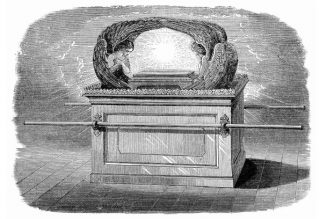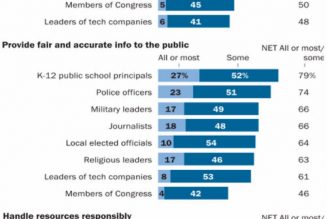1 Corinthians 15 does not contain the entire gospel. Nor is it a comprehensive list of what a person must believe to receive eternal life. To the contrary, how to receive eternal life is not even in view. Eternal life is assumed, and some elements of the gospel are proclaimed to help those who already have eternal life live in light of it.
This study is an excerpt from my Gospel Dictionary online course. This course considers 52 key words of the Gospel and thousands of biblical texts. The course contains over 100 hours Bible teaching. You can take the course by joining my online discipleship group.

The Gospel in 1 Corinthians 15
Paul’s explanation of the gospel in 1 Corinthians 15 is probably more controversial than any other gospel-related passage in the New Testament. This is because 1 Corinthians 15 seems to explicitly define “the gospel.” Paul writes, “Moreover, brethren, I declare to you the gospel which I preached to you, which also you received and in which you stand, by which also you are saved, if you hold fast that word which I preached to you—unless you believed in vain” (1 Corinthians 15:1-2).
Paul writes that he is going to reiterate to them the gospel he preached when he was among them, which they had received, and in which they still stand. All of this is very similar to the language he used in Galatians 2.
The dilemma with what Paul writes, however, comes in the second half of 1 Corinthians 15:2: “…by which also you are saved, if you hold fast that word which I preached.” By this, many believe that Paul is explaining what is necessary to believe in order to receive everlasting life.
But note that if this is what Paul means then the last part of verse 2 (“unless you believed in vain”) implies that if a person doesn’t persevere in holding fast to the gospel, then they either lose their salvation or never really believed in the first place. If Paul is defining what a person must believe in order to be justified, then apparently, they have to continue to believe it to stay justified or prove themselves justified.
The only other option is to recognize that the word “saved” is not referring to going to heaven when you die, but is similar in meaning to how Paul used the word in Romans 1:16-17.

The word saved means “delivered,” and context determines what we are delivered from (see Salvation: The Most Misunderstood Word in the Bible). The word “saved” in 1 Corinthians refers to being “healthy” or blameless at the Judgment Seat of Christ (cf. 1 Corinthians 1:18, 21; 3:15; 5:5; 6:19). The word “saved” in 1 Corinthians is not about escaping hell and go to heaven when we die (It almost never means this in the Bible). Instead, it is about believers living in such a way so that when they stand at the Judgment Seat of Christ (a judgment for believers only), they receive praise and commendation from Jesus for a life well lived.
So the gospel Paul defines in 1 Corinthians 15 is a message for believers to help prepare them for the Judgment Seat of Christ.
This passage is not about the essential elements that must be believed in order to receive everlasting life. This is not a passage for unbelievers.
Rather, 1 Corinthians 15 contains essential discipleship truths which affect our sanctification as believers and how we use the power of God in our lives (cf. 1 Corinthians 1:18).
What if 1 Corinthians 15 IS for non-Christians about how to receive eternal life?
Nevertheless, some still want to use 1 Corinthians 15 as a central passage for the gospel that must be presented to unbelievers so they can receive eternal life. So for the sake of argument, let us briefly assume that such a view is correct.
Let us assume that Paul is talking about essential “evangelistic” truths that a person must believe in order to receive everlasting life. In this view, 1 Corinthians 15:3-4 delineate what these essentials are. Paul writes, “For I delivered to you first of all that which I also received: that Christ died for our sins according to the Scriptures, and that He was buried, and that He rose again the third day according to the Scriptures.”
When these two verses are used to define the essential gospel elements that people must believe in order to receive eternal life, they end up with three basic gospel truths. This passage, we are told, reveals three things a person must believe in order to receive everlasting life. They must believe that:
- Christ died for our sins.
- He was buried.
- He rose again from the dead.
 Some might add a fourth element on the top of this list which is implied by Paul but not stated explicitly, namely that we must also believe we are sinners. The logic is that since Paul writes that Christ died for our sins, people must first believe that they are sinful before they can believe that Christ died for their sins. Fine. Let us give the benefit of the doubt, and allow this implied truth of the gospel as well.
Some might add a fourth element on the top of this list which is implied by Paul but not stated explicitly, namely that we must also believe we are sinners. The logic is that since Paul writes that Christ died for our sins, people must first believe that they are sinful before they can believe that Christ died for their sins. Fine. Let us give the benefit of the doubt, and allow this implied truth of the gospel as well.
But this approach leads to some serious problems about Paul’s definition of the gospel.
For example, who within Christendom does not believe these three (or four) truths? Sure, there might be a few liberal pastors and scholars who deny that we are sinners or argue that Jesus didn’t actually rise from the dead, but for the most part, these three (or four) truths are known, accepted, and believed by just about everybody who bears the name “Christian.” Even the “non-evangelical” fringe groups such as Mormons and Jehovah Witnesses believe these things.
Furthermore, entire segments of Christianity which teach that eternal life is based on our own effort and good works will also wholeheartedly agree to these statements. There is very little in these statements to separate evangelical Christianity from all other forms. There is nothing here to separate orthodoxy from unorthodoxy; nothing which separates true Christianity from cultic Christianity.
Let me put it another way: What if someone believed they were a sinner, that Jesus died on the cross for their sin, was buried, and three days later He rose again from the dead, all in accordance with what Scripture says, but at the same time, believed that Jesus was only human, was not born of a virgin, and sinned just like the rest of us?
Has this person understood and believed the biblical gospel? Of course not! But nothing that Paul says here indicates anything wrong with these other beliefs.
Furthermore, it would be possible to believe everything Paul states in 1 Corinthians 15:3-4, but also believe that we still had to live a life of good works in order to make it to heaven. Has such a person understood and believed the gospel? I would say “No,” as would most evangelical pastors and authors.
Some pastors and Bible teachers recognize this dilemma, and so they add some ideas to what Paul mentions here to help clarify the gospel. They argue that although Paul does not mention these other items here in 1 Corinthians 15, he does mention them elsewhere, such as in Galatians 2 and Romans, and so these other elements can be safely added to Paul’s list of essential gospel truths.
Of course, as soon as people start to go outside of 1 Corinthians 15 to add elements to the gospel, there is no consistency in which elements people start adding. Some Bible teachers will add elements about the deity of Jesus and the necessity of justification by faith alone apart from works. Others will include the sinless life of Jesus, His virgin birth, His atonement, and whatever other “essential” gospel truths they think are necessary.
But as soon as we start adding things to the list of what a person must believe in order to truly have everlasting life, there is no rational stopping place. It is all subjective to how much doctrine you want to throw into the mix. Some will have three essentials, another will have five, while someone else will have eight or ten.
And of course, all of these truths can be shown to be essential to the “gospel” since all of them, in one place or another in the New Testament are included in the gospel.
 This arbitrary practice of augmenting Paul’s definition of the gospel in 1 Corinthians 15 proves that Paul is not defining the gospel after all. He is including some of the essential truths of the gospel, but by no means is he including them all.
This arbitrary practice of augmenting Paul’s definition of the gospel in 1 Corinthians 15 proves that Paul is not defining the gospel after all. He is including some of the essential truths of the gospel, but by no means is he including them all.
Evidence of this is further found in the fact that although most pastors and Bible teachers want Paul’s definition of the gospel to conclude at 1 Corinthians 15:4, this is not where Paul himself stops defining the gospel. He goes on to include numerous truths within his definition of the gospel which no pastor or Bible teacher ever includes in their augmented lists.
Paul continues on through at least 1 Corinthians 15:8, and maybe further than that. In 1 Corinthians 15:5-8, he says, “… and that He was seen by Cephas, then by the twelve. After that He was seen by over five hundred brethren at once, of whom the greater part remain to the present, but some have fallen asleep. After that He was seen by James, then by all the apostles. Then last of all He was seen by me also, as by one born out of due time.”
So if 1 Corinthians 15 defines what a person must believe to receive everlasting life, not only must we include the death, burial and resurrection of Jesus Christ, but also the appearances of Christ to Cephas, then the twelve, then to over 500 at once, then to James, then to the apostles, then last of all to Paul.
If Paul is truly defining the essential gospel elements in 1 Corinthians 15 that an unbeliever must believe in order to receive eternal life, we have no right to arbitrarily stop his definition in 1 Corinthians 15:4, but must include all of the elements he includes, and not add anything he fails to mention. But many pastors and Bible teachers do both—they first add to Paul’s supposed gospel definition in 1 Corinthians 15 and then they also cut things out.
The only available solution to this problem is that Paul is simply mentioning some of the elements of the broader gospel in order to make a particular point to the believers in Corinth. And what point is that?
Paul is explaining the Gospel Truths about the Resurrection to Believers so they can Properly Live
In context, it is a point about the resurrection of Jesus and the future bodily resurrection of all believers (cf. 1 Corinthians 15:20-58). Paul wants the Corinthians believers to be praised and well-received at the Judgment Seat of Christ, and to do that, they need to understand that a future bodily resurrection is coming, after which time they will stand before Jesus and give an answer to Him for how they have lived their lives (cf. 1 Corinthians 3:11-17).
Toward this goal, Paul provides some specific truths from the multi-faceted and all-encompassing gospel which will help them understand that the bodily resurrection of Jesus proves that all believers in Jesus will also be bodily resurrected in the future.
So while the gospel truths of 1 Corinthians 15 can be shared with unbelievers, the truths Paul mentions are primarily directed toward believers, to encourage them to live lives by faith in the Son of God and follow Him in love, service, and self-sacrifice so that we will be spiritually healthy, strong, and bold when we stand before Jesus at the Judgment Seat of Christ.
To summarize then, 1 Corinthians 15 does not contain the entire gospel. Nor is it a comprehensive list of what a person must believe to receive eternal life. To the contrary, how to receive eternal life is not even in view. Eternal life is assumed, and some elements of the gospel are proclaimed to help those who already have eternal life live in light of it. In 1 Corinthians 15, Paul is defending the resurrection by showing that since Jesus was raised, believers will be raised also.
Conclusion
So what is the gospel? It can easily be proved from Scripture that the gospel is more than faith alone in Jesus Christ alone. Much more. The gospel includes elements of the kingdom of God on earth. It includes facts about justification, sanctification, glorification, security in heaven, satisfaction and contentment on earth, and eternal reward. The gospel includes all this and more.
Do you see what this scholar is saying about the gospel? The gospel is not just the content of what is preached, but is also everything God has done for the world in the incarnation, death, and resurrection of Jesus, including the act, process, and execution of the proclamation. The gospel is good news for everybody, whether Jew or Gentile, believer or unbeliever, regarding the benefits and blessings which come to us from the person and work of Jesus Christ.
And while different biblical authors seem to have different gospels, all they really have is different elements which they emphasize in the one all-encompassing, multi-faceted gospel of Jesus Christ. The gospel contains everything related to the person and work, of Jesus Christ, including the events before, during, and after His incarnation.
So do you believe the gospel? I hope you not only believe the gospel truths you have been taught, but also endeavor to learn and believe more gospel truths. Most of all, I hope you believe the central gospel truth of them all, that eternal life is the free gift of God to those who believe in Jesus for it.
 Understanding the Gospel requires us to properly understand the key words and terms of the Gospel. Take my course, “The Gospel Dictionary” to learn about the 52 key words of the Gospel, and hundreds of Bible passages that use these words.
Understanding the Gospel requires us to properly understand the key words and terms of the Gospel. Take my course, “The Gospel Dictionary” to learn about the 52 key words of the Gospel, and hundreds of Bible passages that use these words.
This course costs $297, but when you join the Discipleship group, you can to take the entire course for free.










